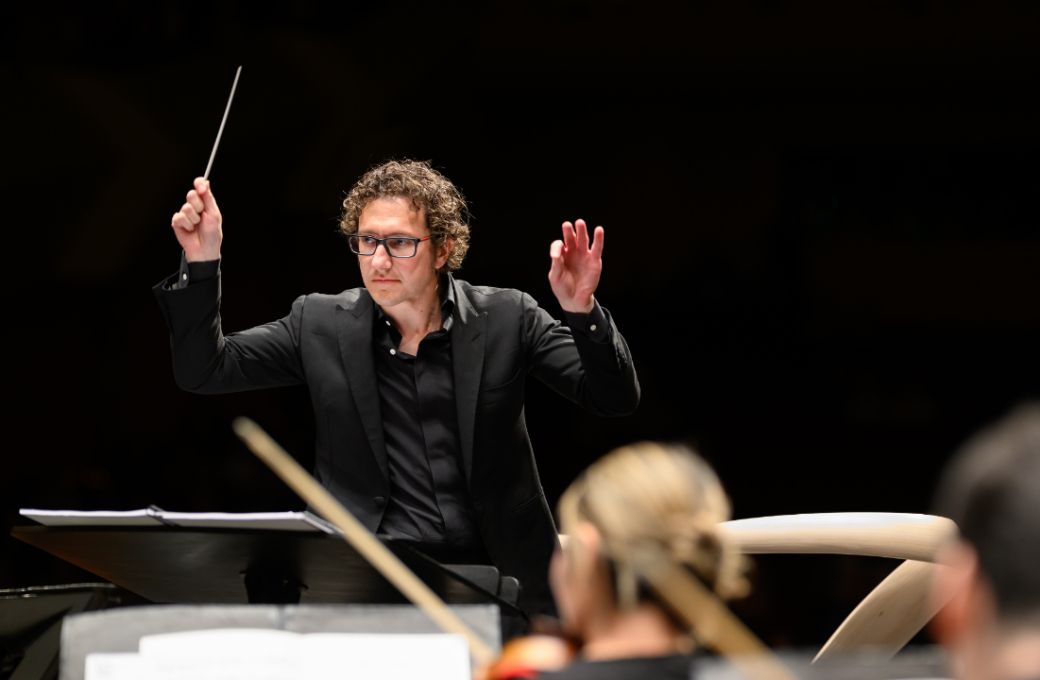What played out at the Hollywood Bowl last night was a celebration of Stravinsky, one of those “only in America” stories. His was a career thrice remade – in Russia, then France, then the USA, soaring from undistinguished student to modernist firebrand, to quirky arrière-gardist and finally global celebrity.

Presiding over the Los Angeles Philharmonic’s program was guest conductor Teddy Abrams, who in his vital interpretations brought to the fore facets of the composer often overlooked, such as that of new arrival to America, torn from sources of material security, forced to hustle his trade on the street.
Some of that comes through in Stravinsky’s arrangement of The Star-Spangled Banner, which appropriately opened the concert. Its unexpected modulations and stresses, born from the composer’s quixotic ambitions to endear himself to his fellow citizens of the New World, still managed to catch its audiences dozily singing along off guard.
Abrams shook up the Bowl some more in his playful tumble through the Circus Polka, a happy piece of hackwork whose brassy guffaws over a snatch of Schubert’s Military March in D major obscure its genesis as one of Stravinsky’s desperate, get-rich-quick schemes that typified his early American work. With extra grit and punch from the conductor, the piece became something else: as much a dance for a young elephant as it is the fight song of the immigrant on his grindset.
Those qualities spilled over into the performance of the Violin Concerto, played by soloist Leila Josefowicz. She dove, swooped, glided, and swooned through the work, investing this neoclassical score with a buoyancy and fervor often missed. Humor and pathos mingled effortlessly as violinist and orchestra fed on each other’s virtuosity, powering a performance that sounded like a busking jam session as reimagined in cubist imagery.
Closing the night was a performance of The Rite of Spring that Abrams set to grooving like a high-brow Eastern European version of roots music, filled as it is with Russian folk tunes that evoke a primeval past both timeless and strangely familiar. There were moments, such as in the “Spring Rounds” and “Mystic Circles of the Young Girls”, when Abrams’ care in caressing Stravinsky’s borrowed melodies almost lent them a Tchaikovskian tilt—a revealing acknowledgement of the new music’s debt to the old. These were integrated into a high-energy performance wherein thrills were balanced with restraint that made the climaxes in the “Dance of the Earth” and “Sacrificial Dance” all the more crushing.
With Dudamel soon to leave Los Angeles, one wonders whether Abrams has a shot at succeeding him. If this impressive turn at the Bowl is anything to go by, we should be so lucky.


